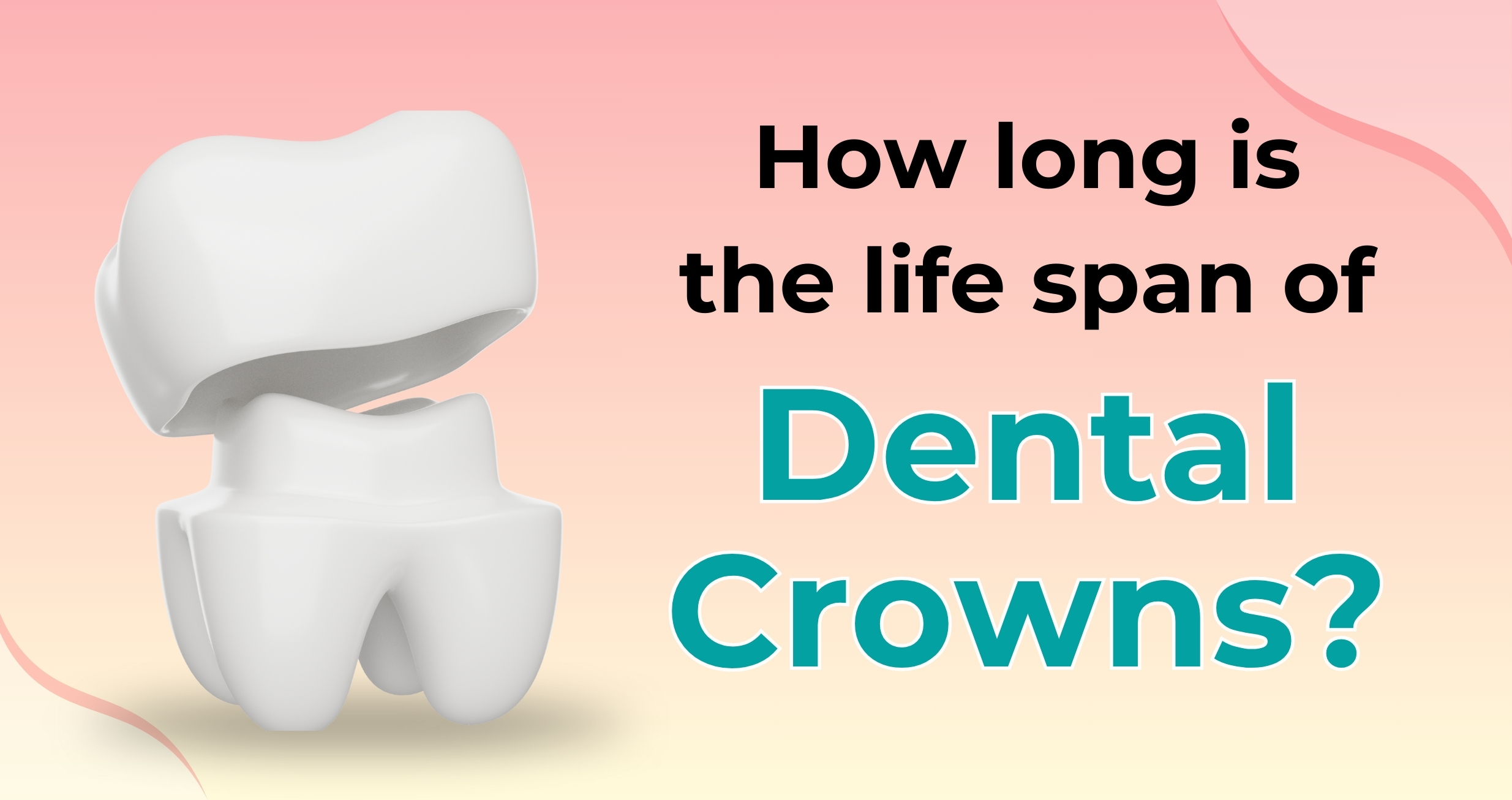
When you think of what it takes to have a perfect smile, maintaining good oral health and having perfectly aligned teeth play a crucial role. However, in today’s fast-paced lifestyle, we don’t give much attention to our oral health, which makes our teeth face a multitude of challenges that can lead to damage. This is where the dental crown, aka tooth cap, steps in as the unsung hero, completing the perfect symmetry of the teeth.
A dental crown is the ideal solution to restore the strength and appearance of your damaged teeth. However, though you cannot expect your dental crown to last lifelong, you can prolong its lifespan with proper care and regular visits to your dentist. In this informative article, we share handy tips on how you can take care of your dental crown and extend its lifespan. You will also learn about the signs that indicate it’s time for a replacement. But first, let us briefly discuss a bit about dental crowns and their importance in dental care.
What Is A Dental Crown?
Simply put, a Dental crown is a cap for a decayed or damaged tooth made from different materials, such as porcelain, zirconia, or metal. Dental crowns are designed to match your other teeth, so you don’t draw unwanted attention to your teeth while yawning or smiling. Dental crowns are also used to restore broken or severely decayed teeth, cover dental implants, hold dental bridges in place, or improve the appearance of crooked or discolored teeth.
The process of getting a dental crown mainly includes two dental visits. During the first visit, your dentist will design the tooth by removing decay and reshaping it to accommodate the crown. Then, they will take blueprints of the tooth, which are used to fabricate the custom crown in a dental laboratory.
Factors Affecting The Lifespan Of Dental Caps
The lifespan of a dental crown varies, depending on the type of material used, as well as your oral hygiene and eating habits. Here, we’ve listed other factors that can significantly affect the lifespan of a dental crown.
- Material
The type of material used to design a dental crown determines its longevity and durability. Common crown materials include porcelain, metal alloys, and a combination of porcelain fused to metal. Each material has its unique properties, with some being more resistant to wear and fracture than others. - Poor oral hygiene
Flossing or poor brushing can lead to infections that can impact the crown and the tooth below it, and decrease its lifespan. - Bite force & grinding habits
If you habitually exert excessive bite force while chewing, this can place stress on dental crowns, making them prone to cracks, fractures, or premature wear. Your dentist may recommend measures such as bite adjustment or occlusal equilibration to redistribute the forces evenly across the teeth and protect the crown from damage. - Placement & fit
Proper tooth preparation is essential for successfully placing and maintaining dental crowns. Dentists must remove any decayed or damaged tooth structure and shape the remaining tooth to fit the crown. A well-fitted dental crown should snugly adapt to the prepared tooth without gaps or spaces between the crown and the tooth structure. Adequate marginal integrity is crucial for a strong bond between the crown and the tooth, which reduces the risk of bacterial leakage and subsequent decay.
Average Lifespan of a Dental Crown
The lifespan of a dental crown mostly ranges from 5 to 15 years, depending on the factors mentioned above. By avoiding harmful habits like improper brushing or flossing and chewing or grinding hard objects, you can increase the dental crown’s life. Regular dental visits and proper care are also crucial.
Routine check-ups allow dentists to monitor the crown’s condition and help address any issues, such as signs of infection, wear, or deterioration. Through dental cleanings, dentists prevent infections from spreading and endangering the crown and the tooth beneath it. Maintaining good oral hygiene practices, including brushing twice daily, helps prevent decay and gum disease that could compromise the crown’s integrity.
Signs Your Dental Crown May Need Replacement
Knowing the signs that indicate your dental crown may need replacement is essential for maintaining oral health and preventing potential complications. Here are some common signs to watch for:
- Visible Damage
You must check your dental crown for any damage, such as cracks, chips, or fractures. Even minor damage can weaken the crown and require replacement. - Discomfort or Pain
If you experience discomfort or pain around the crowned tooth could indicate underlying issues such as decay, infection, or nerve damage. Discomfort when biting or chewing may also suggest a problem with the crown’s fit or alignment.
- Looseness or Mobility
A proper dental crown should feel secure and stable. If you notice any looseness or mobility in the crown, it may have detached from the underlying tooth structure or failed due to decay or other issues. - Gum Irritation or Recession
Inflammation, gum irritation, or recession around the crowned tooth may indicate an ill-fitting crown or underlying gum disease. These issues can compromise the crown and tooth seal, allowing bacteria to infiltrate and cause decay. - Sensitivity to Heat or Cold
Feeling pain in hot or cold temperatures, especially when consuming food or beverages, may suggest that the protective layer of the crown has worn down, exposing the underlying tooth structure and nerves. - Changes in Appearance
Changes in the appearance of the dental crown, such as discoloration, staining, or a rough texture, may indicate wear or deterioration of the crown material. This can significantly affect the crown’s aesthetics and function and may warrant replacement for cosmetic or functional reasons. - Difficulty Cleaning Around the Crown
Difficulty cleaning or flossing around the crowned tooth may indicate that the crown is not fitted correctly or that plaque and bacteria have accumulated around the margins. This can make you prone to the risk of decay and gum disease and may necessitate replacement.
Conclusion
Maintaining your dental crown is essential for its longevity and preserving your oral health. Follow these oral hygiene practices, avoid habits that can damage the crowns, and seek prompt dental care. Doing this will maximize the lifespan of your dental crowns and allow you to enjoy their benefits for years to come.
By taking these proactive steps to care for your dental crowns and following your dentist’s advice, you can increase their lifespan and enjoy a healthy, radiant smile for years.
Schedule your appointment today at Gnathos Dental to discover personalized treatments tailored to your unique needs. We strive to provide top-quality dental services tailored to your needs.
- Tags:
- Dental Crown


